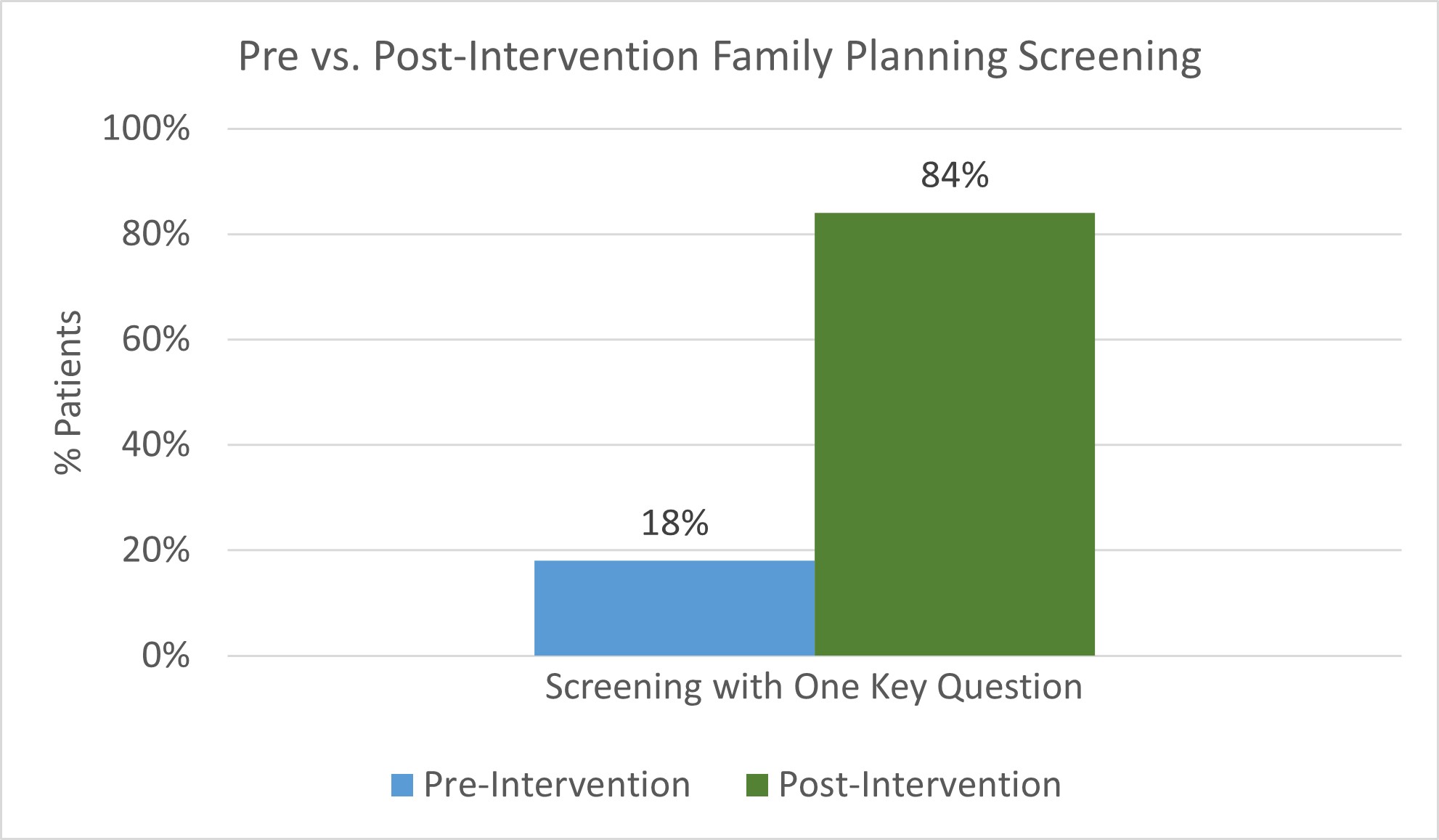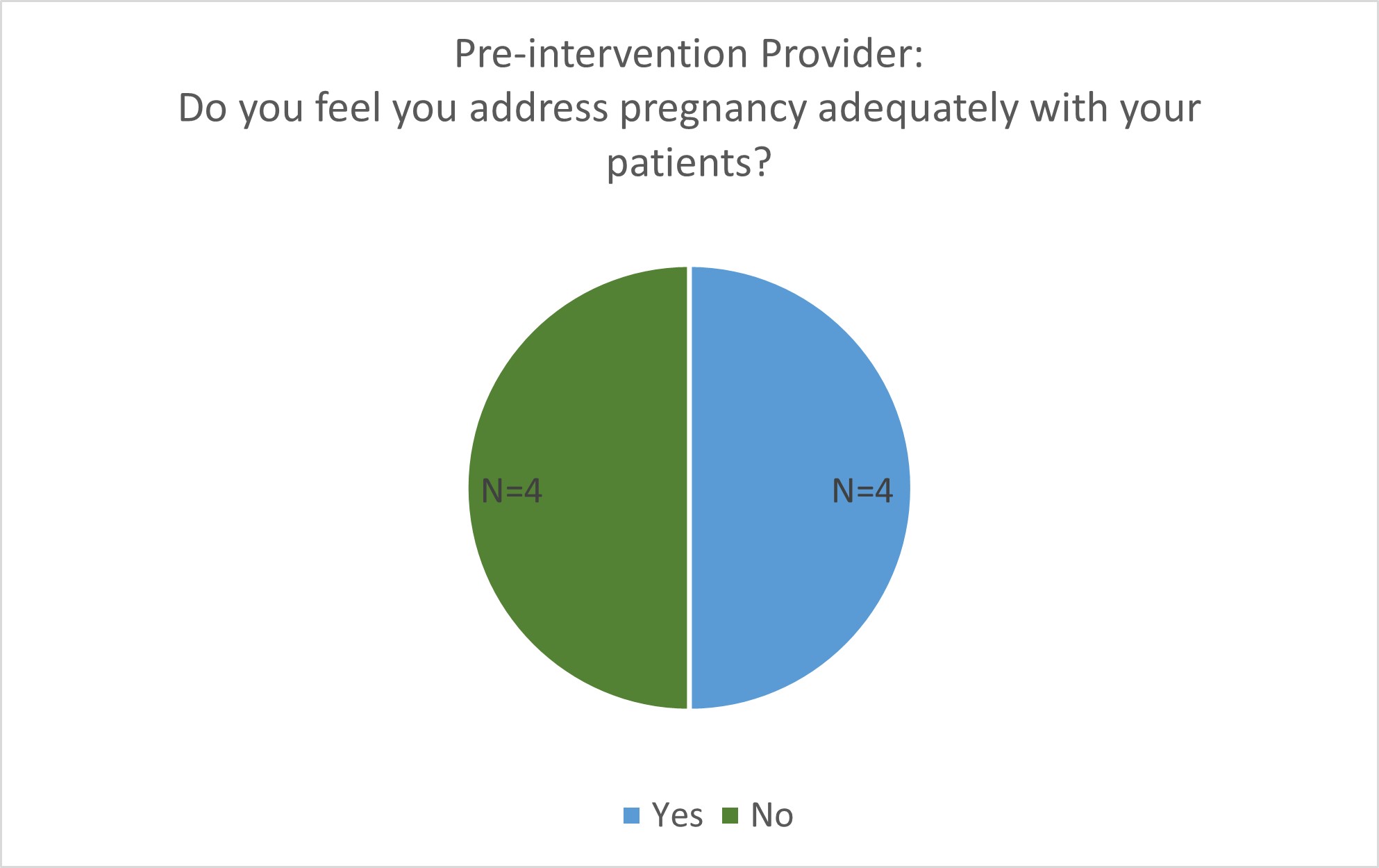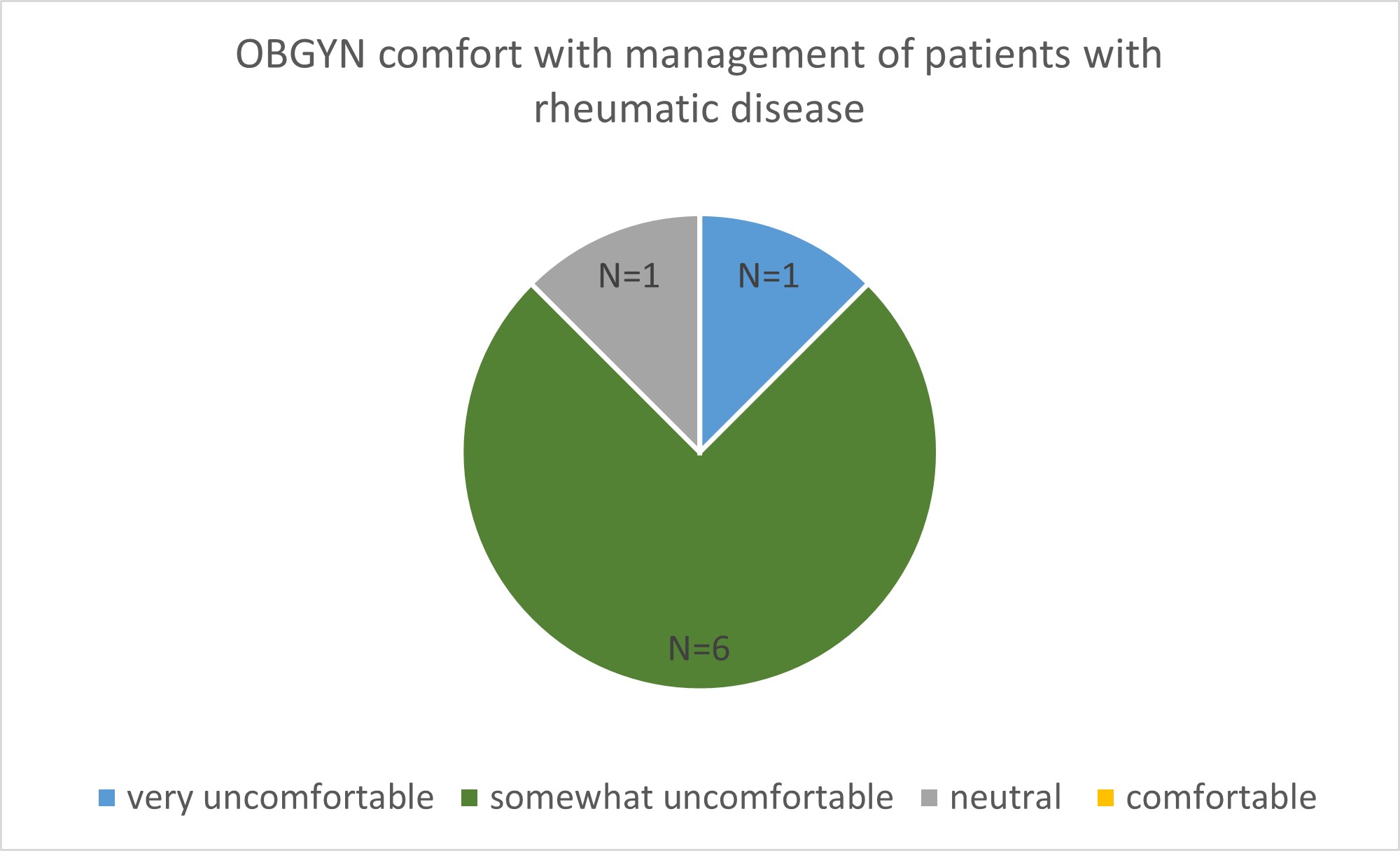Session Information
Session Type: Poster Session A
Session Time: 10:30AM-12:30PM
Background/Purpose: Pregnancy in patients with rheumatologic disease can lead to serious maternal and fetal complications. Multinational surveys have shown that medical providers often fail to give adequate family planning information and support to patients of childbearing age with rheumatologic diseases. Several QI projects have implemented standardized pregnancy intention screening questions in rheumatology clinics demonstrating improved pregnancy counseling. We conducted a needs assessment in our institution with rheumatology and OBGYN providers. The aims of this project were to gauge patient satisfaction and provider comfort in family planning discussions and increase screening for family planning desires amongst patients of childbearing age.
Methods: Online REDCap surveys were launched for patients (N=246, 191 pre-intervention, 55 post-intervention), rheumatology providers (N=8), and OBGYN residents (N=8). Rheumatology and OBGYN providers were surveyed for comfort with family planning conversations with patients with autoimmune disease. Patients – women and transgender men (age 18-50) – were asked about pregnancy desires, comfort with rheumatologic medications and contraception method, and satisfaction with family planning conversations. Our primary intervention was implementation of the validated One Key Question during the clinic rooming process: “Do you want to become pregnant in the next 12 months?” Secondary interventions included a grand rounds presentation, smart phrases for providers, billing codes for general counseling on contraception, and laminated contraception handouts in clinic. Patient survey results were collected pre- and post-intervention and analyzed with Chi-square, Fisher’s exact, Mann-Whitney tests using Stata 18 software.
Results: Pre-intervention survey data showed 50% of rheumatology providers feel they inadequately address pregnancy planning with their patients, and 88% of OBGYN residents feel uncomfortable managing patients with autoimmune disease during pregnancy. Post-intervention data showed an increase in percentage of patients screened for pregnancy intention, from 18% to 84% (p=0.000). Patient satisfaction with family planning conversations pre- vs. post-intervention was unchanged (p=1.000), as was patient comfort with rheumatologic medications and contraception method (p=0.6737 and p=0.7454, respectively).
Conclusion: We instituted an effective QI intervention that significantly increased family planning screening in the rheumatology clinic. OBGYN and rheumatology provider survey results demonstrate a care gap necessitating future efforts to improve interdisciplinary management of patients with immune mediated inflammatory disease. We did not see a statistically significant change in patient satisfaction with family planning discussions or comfort with medications and contraception method. Next steps include collecting post-intervention provider survey data and administering patient surveys at 6-month intervals throughout the next year. We expect that screening with the One Key Question will continue to stimulate family planning conversations and improve provider and patient comfort and satisfaction.
To cite this abstract in AMA style:
Heard S, Cravens E, Gosselin J, Hitt J. Family Planning in Rheumatology: A Single Center Quality Improvement Project [abstract]. Arthritis Rheumatol. 2024; 76 (suppl 9). https://acrabstracts.org/abstract/family-planning-in-rheumatology-a-single-center-quality-improvement-project/. Accessed .« Back to ACR Convergence 2024
ACR Meeting Abstracts - https://acrabstracts.org/abstract/family-planning-in-rheumatology-a-single-center-quality-improvement-project/



